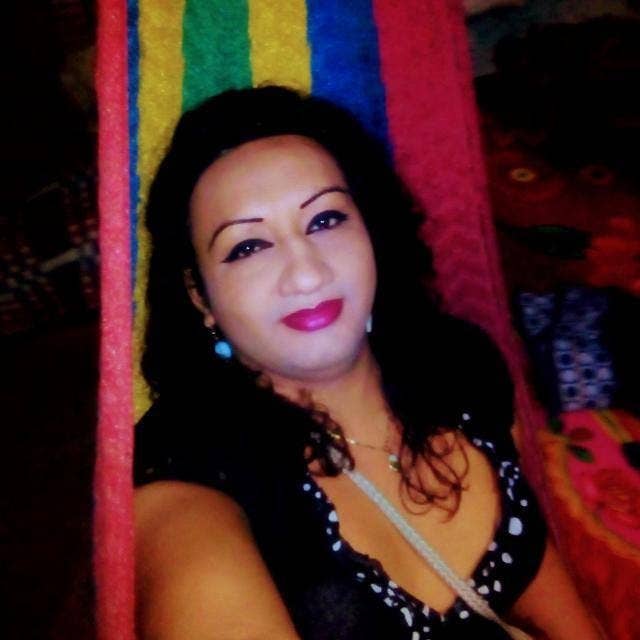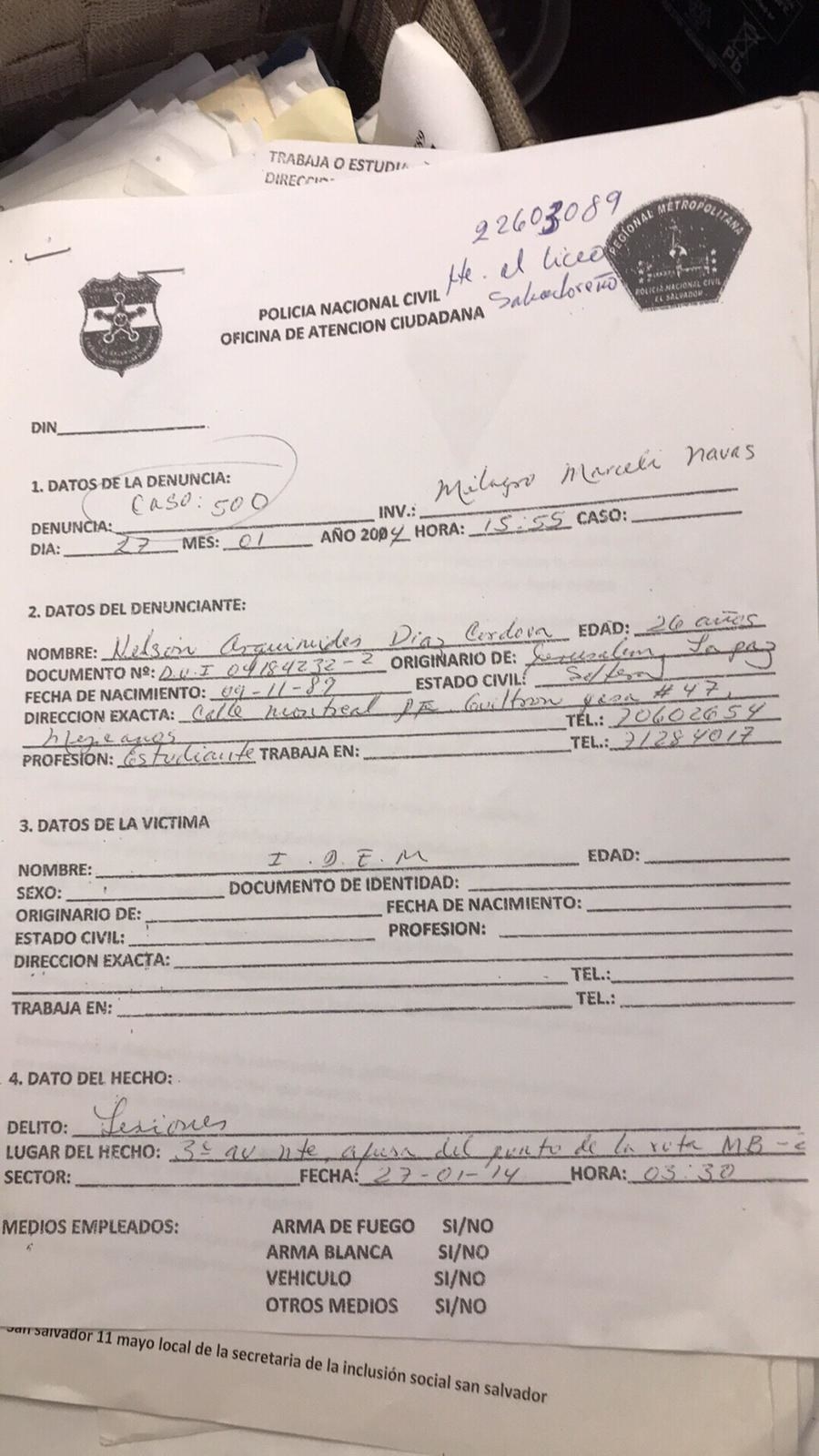
A transgender woman who sought asylum in the US and was deported by immigration authorities to El Salvador was killed earlier this month, advocates say, highlighting the violent conditions LGBT migrants have fled in Central America to seek protection in the US.
Camila Díaz Córdova, 29, died on Feb. 3, days after she was found injured in Soyapango, a municipality in the outskirts of the capital, San Salvador, both a friend and trans advocate said.
Doctors told her friend, Virginia Flores, that she had either been brutally attacked or struck by a vehicle, and was transported to a hospital after she was found injured in a street.
"It was all so tragic," Flores told BuzzFeed News.
The Washington Blade first reported Díaz Córdova's death.
Díaz Córdova had requested asylum from US Customs and Border Protection (CBP) in the summer of 2017 in Tijuana, Flores said, fleeing to the US after gang members had tried to kill her. By November 2017 she had been deported to El Salvador, Flores said.
Her death comes amid criticism of the Trump administration's treatment of transgender asylum seekers, including efforts to bar protections for people who enter the US between ports of entry and making migrants wait in Mexico while their immigration cases are adjudicated. Immigrant advocates have also criticized the treatment of transgender people in US detention. Last year Roxsana Hernández, a trans woman who traveled with the spring migrant caravan, died in US custody shortly after requesting asylum.
The journey to the United States is also dangerous for LGBT migrants. The UN High Commissioner on Refugees reported that 88% of LGBT asylum seekers and refugees from Guatemala, Honduras, and El Salvador who were interviewed in a study suffered sexual and gender-based violence in their countries of origin. Another UNHCR report found that two-thirds of LGBT refugees from Central America had suffered sexual and gender-based violence once they entered Mexico.

Al Otro Lado, a Tijuana-based legal group that assists migrants, said Díaz Córdova stayed at an LGBT center in Tijuana when she first arrived at the US-Mexico border in 2017 with another trans woman. But Díaz Córdova did not remain there long enough to receive services from Al Otro Lado, a spokesperson for the group said.
CBP did not respond to repeated BuzzFeed News requests for information on Díaz Córdova. US Citizenship and Immigration Services declined to confirm if she had applied for asylum.
In a statement Immigration and Customs Enforcement said Díaz Córdova applied for admission to enter the US without proper entry documents on August 4, 2017 at the Otay Mesa Port of Entry in Tijuana.
After an interview and inspection by officers with CBP Díaz Córdova was processed for expedited removal and transferred to ICE custody, the agency said. She was placed in deportation proceedings and on Nov. 1, 2017 Díaz Córdova asked an immigration judge to send her back to El Salvador. The judge issued a final order of removal and both parties waived appeal rights. She was deported to El Salvador on November 22, 2017.
Because she had little education and lost the support of her family after she transitioned, the only employment Díaz Córdova could find was sex work, Flores said.
"I told her not to do that, but she told me there was no other way for her to live," Flores said.
Díaz Córdova was being threatened by other trans sex workers in the days leading up to her death, Flores said, in part because she refused to work on the same block as others and suspected jealousy.

"She had really long beautiful hair," Flores said. "They had threatened to cut it off before."
On Jan. 30, the night Díaz Córdova was left battered on the streets, she sent Flores audio messages saying other trans women were threatening her.
"I'm here on these horrendous and fatal streets," Díaz Córdova said in the messages reviewed by BuzzFeed News. "Here I am, oh well. Putting up with these gossipy and troublesome girls."
The next day Flores received a call from her cousin who said Díaz Córdova hadn't returned home. She set off looking for her and a local government office told her an unidentified trans woman had been admitted to a nearby hospital.
When she arrived at Rosales National Hospital in San Salvador, a doctor told the Díaz Córdova died on Feb. 3, the same day as the presidential elections.
Flores said she hasn't filed a police report over her death yet because of the emotional toll it took on her and the threats she received from an unknown caller shortly afterward Still, she plans on filing a police report soon.
"If my ultimate sin is to investigate what happened to her, so be it," Flores said.

Monica Linares, director of Asociación Aspidh Arcoiris Trans, a transgender advocacy organization in El Salvador, said she heard conflicting reports from trans women who said they were at the scene of the attack.
"They said it was the police who beat her up and threw her in the back of a police car," Linares told BuzzFeed News. "They're scared because the police won't investigate their own."
Linares provided BuzzFeed News with a 2014 complaint Díaz Córdova filed with El Salvador's National Civil Police for an an assault she sustained that left her injured.
Linares said Díaz Córdova was attacked for being transgender, but the report did not contain specific details about the assault. Transgender women are offered little protection or justice in El Salvador, she said.
"Trans women are killed far too often in my country," Linares said.
